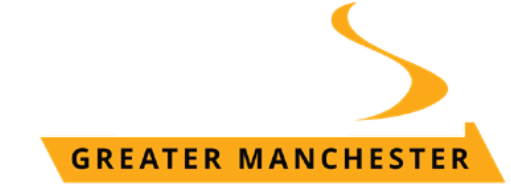
University of Bolton, Deane Road, Bolton. BL3 5AB
Tel:
Email:


“At the University of Bolton, we take great pride in providing a quality, supportive learning environment for our students.”
Professor George E Holmes DL | President & Vice Chancellor
“...tutors are very supportive and you’re not just a student ID number, at this university you are an individual with a name.”
Ellisse Vernon | BSc (Hons) Adult Nursing
Back to menu
Back to menu
Study with an Off-Campus Partner
Back to menu
Back to menu
University of Bolton, why we are the right choice
Location - Bolton, Greater Manchester

27/07/2023
Are you currently trying to figure out what path course to study at university? If you are considering heading in the direction of studying computer science, there are key things you need to be aware of before applying. It is crucial that you research any degree you are interested in taking so that you have a good understanding and can be prepared for your studies.
With technology rapidly evolving, digital industry careers are in demand, therefore now would be the perfect time to start your career. Let’s jump into the exciting world of computer science.
What is Computer Science?
Computer science, in simple terms, is the study of computers and how they work. It involves understanding how to use computers to solve problems and perform tasks efficiently. Computer scientists thrive in creating software and applications that make our lives easier. Essentially, computer science is about harnessing the power of technology to make our digital world better and more functional.
Learn how to write programmes or code that instruct computers to do specific things. They also explore topics such as:
- Data analysis
- Algorithm and data structure
- Human-Computer Interaction (HCI)
- Computer networking and security
- Artificial intelligence
What Skills Does it Take?
There are many skills computer scientists have, however, we’ve narrowed down to five we think are important to save time. Let’s dive in.
Programming Skills:
Starting off with the most obvious, programming skills are essential for computer science. Students need to be comfortable with languages like Python, Java, C++, or JavaScript, as they form the basis of software development and coding projects.
Problem-Solving Abilities, Creativity and Critical Thinking:
Computer science involves solving complex problems through algorithms and logical reasoning. Analytical thinking and the ability to break down challenging tasks into smaller, manageable steps will be expected of you.
Computer scientists must think critically to identify efficient solutions and approaches to various challenges. To many students' surprise, creativity plays a role as when you are devising innovative solutions or creating new applications you need to have the ability to develop new ideas.
Maths and Logic:
Maths forms the backbone of computer science, and a solid understanding of basic concepts will come in handy for designing algorithms and analysing data efficiently. However, if you aren’t strong in maths this won’t get in your way of reaching success; you will simply pick up skills along the way.
Communication and Collaboration:
Effective communication skills are essential for computer scientists to convey technical concepts to non-technical audiences. Working in teams will be expected on complex projects and collaborating with colleagues is necessary to achieve goals.
While these are core skills for computer science, the field is very much dynamic and ever-evolving. Adaptability, continuous learning, and staying updated with emerging technologies are also vital for success in the industry.

What Are the Possible Career Opportunities?
Computer science graduates have a wide range of career opportunities, thanks to the growing demand for technology professionals. Here are four career paths that you might be interested in:
Software Developer/Engineer:
As a software developer or engineer, you will design, develop, and test software applications and systems. You could work on anything from mobile apps and web platforms to enterprise-level software solutions. Salaries can start from £24k and with experience, you could be earning over £70k. The role involves programming in various languages, collaborating with cross-functional teams, and ensuring the quality and functionality of the software.
Data Analyst/Scientist:
Data analysts and data scientists are responsible for collecting, analysing, and interpreting large datasets to obtain meaningful insights and support decision-making processes. This role is critical in various industries, including:
- Finance
- Healthcare
- Marketing
- E-commerce
And more!
When taking on this role you can expect to earn anything between £30k to £70k. Proficiency in data manipulation, statistical analysis, and machine learning techniques is often required.
Cybersecurity Specialist:
Cybersecurity professionals are in high demand as organisations strive to protect their data and systems from cyber threats. As a cybersecurity specialist, you would focus on implementing security measures, conducting vulnerability assessments, and responding to security incidents. There is an earning potential of over £60k for seasoned professionals. The role involves staying up to date with the latest security threats and developing strategies to safeguard digital assets.
Artificial Intelligence/Machine Learning Engineer:
With the rise of AI and machine learning, this career path is becoming increasingly sought after. AI/ML engineers work on developing algorithms and models that enable machines to learn from data and make intelligent decisions. Due to the demand for this type of engineer, expect salaries to be as high as £77k with an average of £56k. They apply AI in diverse areas, such as natural language processing, computer vision, recommendation systems, and autonomous vehicles.
These are just a few examples, there are many other career opportunities available. The industry is constantly evolving, and as technology advances, new roles and specialisations continue to develop. Graduates can explore opportunities in areas like game development, cloud computing, software testing, IT consulting, and more, depending on interests and skills.
Why you should study computer science at the University of Bolton
Saving the best part of the blog till last, we thought we would introduce you to a few reasons why studying BSc (Hons) Computer Science at Bolton University would be a great decision. Finding the right university is like wearing the comfiest shoes, that’s why we think it's important students know what we have to offer them.
- Our computer science course has been ranked number one for Student Satisfaction* due to our dedication to providing students with a positive and supportive learning environment for the past five years
- We are the first university in the UK to become a RedHat Academy meaning we incorporate RedHat Linux certification training into your studies
- Students commonly have incredible work placement opportunities due to our strong industry links
- You have the option of using Google and Amazon cloud infrastructure, or learning programming languages such as python and C#
- Our dedicated careers and employability team will support your career ambitions
- We offer students a more personal learning experience due to having small class sizes. Students usually find themselves more comfortable and enables lecturers to interact with individuals as well as offer support throughout their studies.
- Want to find out more about the course? Click the link here!
At the University of Bolton, we want all our students to succeed and reach their potential, we aim to ensure that no student feels as if they must struggle in silence. Whether it’s course-related stress or personal issues, we have an excellent Student Service Team that will support you. Follow the link here to find out more.
If you are looking to apply to the University of Bolton via clearing, follow this page linked here to find out all the information you need to know on how to successfully be prepared. If you are unsure of what direction to head in, you will also find our quiz that helps to identify your strengths and what areas you are likely to excel in!
For any further questions, contact us at enquires@bolton.ac.uk or call us on 01204 903903. We are always happy to help!
*Complete University Guide – Student Satisfaction – Northwest – 2019 - 2023